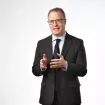This article was originally published in the July/August edition of the ITMA Review.
The London Organising Committee of the Olympic Games ("LOCOG") recently announced that it intends to actively police online keyword bidding on protected Olympic terms in the run up to the Olympic Games in London next year.
Although LOCOG has not yet formally announced its online advertising policy, this announcement is a clear indication that LOCOG intends to attempt to control possible attempts at so-called ambush marketing through online keyword advertising campaigns.
Ambush marketing involves promotional and advertising activity usually centred on well known sporting events by firms which are not official sponsors of the events. An early example of ambush marketing occurred at the Los Angeles Olympics in 1984 when Kodak sponsored television broadcasts of the games as well, as the US track team, despite Fuji being an official sponsor. The football World Cup in South Africa last year saw controversy when a marketing campaign saw thirty six women wearing orange dresses attend the Holland versus Denmark game to promote BAVARIA beer.
With the issue of ambush marketing in mind and its potential detrimental effects on potential licensing revenue to be derived from the Games, The London Olympic Games and Paralympic Games Act 2006 grants LOCOG the power to prevent the creation of any unauthorised association between a business, goods or services and the London 2012 Olympic Games or the Paralympic Games, in the course of trade. Such powers are in addition to those granted under the Olympic Symbol (Protection) Act 1995 which protect the Olympic Symbol, the word Olympic, Citius Altius Fortius and other associated terms amongst others.
Whether an authorised association has been made will be assessed on a case by case basis, however, the Act specifies certain 'Listed Expressions' and states that a court may take these into particular account when determining if an association has been created. The Listed Expressions are: any two of the words: Games, Two Thousand and Twelve, 2012, Twenty-Twelve OR any word in the aforesaid list with one or more of the words: London, medals, sponsors, summer, gold, silver, bronze.
However, for some time, Google at least allows bidding on keyword terms in the United Kingdom which includes trade mark terms. Further, Google will only remove adverts if the specific ad text confuses users as to the origin of the advertised goods and services. This would suggest that there could at least be a means for ambush marketing to occur via keyword bidding either in relation to protected terms such as 'Games 2012', 'London Games' or more interestingly in relation to the trade marks of official sponsors. The question is does LOCOG have the means to prevent such actions?
The London Olympic Games and Paralympic Games Act 2006 prevents the creation of any unauthorised association between a business, goods or services and the London 2012 Olympic Games or the Paralympic Games, in the course of trade. Although the raft of recent keyword cases decided by the Court of Justice has not always laid down clear guidelines on the use of trade marks in keyword advertising, they have found that such activities do constitute use of a trade mark in the course of trade, which would appear the first hurdle LOCOG would have to overcome in any enforcement action through its powers under the London Olympic Games and Paralympic Games Act 2006.
The next hurdle for LOCOG to overcome would be whether the keyword advert created an unauthorised association between a business, goods or services and the London 2012 Olympic Games or the Paralympic Games, a particular issue where the offending term did not visually appear in the keyword advert text. The Court of Justice has already held in a series of cases concerning keyword advertising that trade mark infringement should be held where:-
(i) a third party's ad suggests that there is an economic link between that third party and the trade mark proprietor; or
(ii) an ad is so vague concerning the origin of the goods or services that a normally informed and reasonably attentive internet user is unable to determine, on the basis of the advertising link and the commercial message attached to it, whether the advertiser is an unrelated third party or economically linked to that trade mark proprietor.
It would appear that creating a mere 'association' is a much easier hurdle to overcome than the above tests.
However, as with the issue of trade mark infringement and keyword advertising outlined in the Court of Justice decisions, it has still to be decided what limitations will be placed on the question of association. Will the mere bidding on a keyword such as 'London Games' which triggers an ad which does not include the said term but a third party brand of a non-official sponsor of the Games be found to create an association?
One could argue if the mere appearance of non-official brands in the vicinity of the London Olympic events is prohibited under the London Olympic Games and Paralympic Games Act 2006, unless the company is an official Tier 1 or Tier 2 sponsor, then equally the example of keyword advertising given in the aforementioned paragraph should also be prohibited, as would the use of official sponsor names or trade marks in such keywords.
However things pan out it is clear that LOCOG's recent announcement makes it clear that they will be actively policing this issue over the coming months and year. Let the Games begin!
The content of this article is intended to provide a general guide to the subject matter. Specialist advice should be sought about your specific circumstances.


